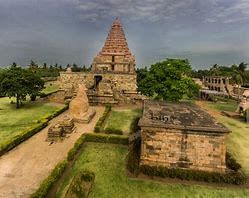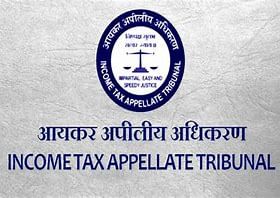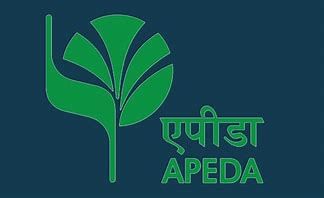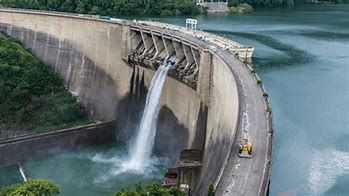UPSC Daily Current Affairs - 17th February 2024 | Current Affairs & Hindu Analysis: Daily, Weekly & Monthly PDF Download
GS-I
1000-YO Mahavir Statue Found in Tamil Nadu
Subject: Art and Culture

Why in news?
A 1,000-year-old stone statue of Thirthangara Mahavir has been found in Tamil Nadu at at Manavarayanendal near Thiruchuli in Virudhunagar district.
Features of the Statue
- There is a triple umbrella above the head of the statue, which has creepers carved on it.
- It is flanked by sculptures of yakshas.
- Based on the sculpture technique, it is assumed that the statue might belong to the 11th century AD.
About Vardhaman Mahavir
| Description | |
| Birth | 540 B.C. |
| Birthplace | Kundagrama village near Vaishali |
| Family Background |
|
| Renunciation |
|
| Spiritual Practice |
|
| Attainment of Kaivalya |
|
| First Sermon |
|
| Symbol |
|
| Missions |
|
| Passing Away |
|
| Legacy |
|
Source: Outlook
GS-II
Income Tax Appellate Tribunal (ITAT)
Subject: Polity & Governance

Why in News?
Recently, the I.T. department froze Congress bank accounts over 2018-19 returns but the appellate tribunal provided partial relief.
About Income Tax Appellate Tribunal (ITAT):
- ITAT is a quasi-judicial institution set up in January 1941.
- It specialises in dealing with appeals under the Direct Taxes Acts.
- Functions:
- It hears income tax appeals from taxpayers against orders passed by the Income Tax Authorities.
- The orders passed by the ITAT are final, an appeal lies to the High Court only if a substantial question of law arises for determination.
- Benches:
- Presently ITAT has 63 Benches in 27 different states covering almost all the cities having a seat of the High Court.
- Strength: One President, who is assisted by ten (10) Zonal Vice Presidents and 115 Members (i.e. Accountant Members and Judicial Members).
- The ITAT is headed by a President, who is appointed by the Central Government.
- Monetary Limits set by the CBDT are the following:
- Before the ITAT – Rs 50 lakh.
- Before the High Court – Rs 1 crore.
- Before the Supreme Court – Rs 2 crore.
- ITAT is referred to as the 'Mother Tribunal' being the oldest tribunal in the country.
Source: The Hindu
Draft Guidelines for the Prevention of Misleading Ads in Coaching Sector
Subject: Polity & Governance

Why in News?
The Central Consumer Protection Authority (CCPA), an arm of the Union Consumer Affairs Ministry, has released draft guidelines for the “Prevention of misleading advertisement in the coaching sector”.
- The draft guidelines will bring such offences under the radar of the Consumer Protection Act.
About the Central Consumer Protection Authority (CCPA):
- It is a regulatory authority set up under [Section 10(1)] the Consumer Protection Act 2019 to regulate matters related to violation of consumer rights, unfair trade practices, and misleading advertisements.
- It has an investigation wing, headed by a Director-General, which may conduct inquiry or investigation into such violations.
- Functions of the CCPA:
- Inquiring into violations of consumer rights, investigating and launching prosecution at the appropriate forum;
- Passing orders to recall goods or withdraw services that are hazardous, reimbursement of the price paid, and discontinuation of the unfair trade practices;
- Issuing directions to the concerned trader/ manufacturer/ endorser/ advertiser/ publisher to either discontinue a false or misleading advertisement or modify it;
- Imposing penalties (up to Rs 10 lakh and imprisonment for up to 2 years for a false/ misleading ad) and issuing safety notices to consumers against unsafe goods and services.
About the Consumer Protection Act 2019:
- It was introduced by the Ministry of Consumer Affairs, Food and Public Distribution and replaced the previous - The Consumer Protection Act 1986.
Draft Guidelines for the Prevention of Misleading Ads in Coaching Sector:
- Background:
- The CCPA had formed a sub-committee to draft the guidelines after discussions with several stakeholders.
- Such guidelines were initiated after widespread complaints against certain coaching centres for misusing the names and photos of successful candidates in various competitive examinations, including the civil services exam.
- Key Highlights of the Guidelines:
- It has defined coaching as “tuition, instructions or academic support or learning programme or guidance” provided by any person.
- Any individual who engages in coaching shall be considered to be engaging in a misleading advertisement if important information related to the course (free/ paid, duration opted by the successful candidate) is concealed.
- What will be considered as misleading under the new guidelines?
- Making false claims regarding success rates, number of selections, or rankings of students in any competitive exam without providing verifiable evidence;
- Falsely representing students’ success as solely attributable to the coaching, without acknowledging the individual efforts of the students;
- Stating or leading the consumers to believe that enrollment in coaching will guarantee the student a rank, etc., unless the coaching is able to substantiate the claims; and
- Creating false sense of urgency or fear of missing out that may heighten anxieties amongst students or parents.
- The objective of the Guidelines: To protect consumers from misleading ads in the coaching sector by preventing such ads which affect consumers as a class.
Source: Business Line
GS-III
APEDA
Subject: Agriculture

Why in News?
The Union minister of state for commerce and industry addressed a gathering of farmers and Agri-produce buyers in the ‘Agri-Export: Capacity Building Cum Buyer-Seller Meet’ organised by APEDA in Mirzapur.
About APEDA:
- The Agricultural and Processed Food Products Export Development Authority (APEDA) was established by the Government of India under the Agricultural and Processed Food Products Export Development Authority Act, 1985.
- This Authority replaced the Processed Food Export Promotion Council (PFEPC).
- The Authority with its headquarters at New Delhi, is headed by a Chairman.
- In order to reach out to the exporters in different parts of the Country, APEDA has set up 15 Regional Offices in different cities like- Mumbai, Bengaluru, Kolkata etc.
- Functions: The following functions have been assigned to the Authority:
- Registration of persons as exporters of the scheduled products on payment of such fees as may be prescribed;
- Fixing of standards and specifications for the scheduled products for the purpose of exports;
- Improving of packaging of the Scheduled products;
- Improving marketing of the Scheduled products outside India;
- Promotion of export-oriented production and development of the Scheduled products;
- Training in various aspects of the industries connected with the scheduled products;
- APEDA also functions as the Secretariat to the National Accreditation Board (NAB) for the implementation of accreditation of the Certification Bodies under the National Programme for Organic Production (NPOP) for Organic exports.
- Ministry: Ministry of Commerce and Trade.
Source: Hindustan Times
New crustacean Species
Subject: Environment and Ecology

Why in News?
Researchers at Odisha’s Berhampur University recently found a new crustacean in Odisha’s Chilika lagoon.
About the New Crustacean Species:
- It is a new species of marine amphipod-a shrimp-like crustacea of genus Parhyale.
- This genus is represented by 15 species globally, occupying both marine and brackish water environments.
- Features:
- It is brown in colour and around eight mm in length.
- It has 13 pairs of legs. The first pair of legs is used for capturing prey and feeding.
- It differs from all other 15 species by having a stout robust seta -a spine-like structure on the surface of the propodus of the male gnathopod (first pair of legs).
What are Amphipods?
- Amphipods are any member of the invertebrate order Amphipoda (class Crustacea) inhabiting all parts of the sea, lakes, rivers, sand beaches, caves, and moist (warm) habitats on many tropical islands.
- Amphipods are a significant group in the marine ecosystem and play a vital role in the marine food chain.
- They range in size from a millimetre in length to the supergiant amphipod Alicella gigantea at 340 mm.
- They can be found in all marine habitats (even the deepest ocean trenches, e.g., Hirondellea dubia), and have also colonised freshwater and terrestrial habitats.
- The generic diversity of amphipods is apparently higher in cold waters than in warm ones.
- They are important food for many fish, invertebrates, penguins, shore birds, small cetaceans, and pinnipeds.
- Most amphipods are active swimmers, propelled by three pairs of abdominal appendages.
- They also serve as indicators for studying the impact of climate change and the health of coastal ecosystems.
Source: DTE
The cost of legal MSP is greatly exaggerated
Subject: Economics

Why in News?
Farmers in India are demanding a legal guarantee for Minimum Support Prices (MSP) to stabilize agricultural commodity prices and ensure their livelihoods. Despite the longstanding demand and political consensus, successive governments have been hesitant to implement this, primarily due to concerns about fiscal costs. However, the actual costs and benefits of such a guarantee are often misunderstood, leading to fear mongering and misconceptions about its implications.
Key Highlights:
- Farmers’ demands for a legal guarantee for MSP stem from the need for stability in agricultural commodity prices to protect their incomes.
- MSP is a mechanism to ensure price stability for essential agricultural commodities, but its implementation is limited, mainly focusing on rice and wheat.
- Misconceptions about the fiscal costs of MSP guarantee have hindered its implementation, despite political consensus and support from various parties and unions.
- The cost of procuring agricultural produce is often misconstrued, with the majority being a subsidy to consumers rather than to farmers.
- A guaranteed MSP offers an opportunity to rectify imbalances in the MSP and procurement system, promoting regional diversification and crop expansion.
- Neglect of the agrarian economy has led to declining real incomes and wages for farmers, highlighting the urgency of reforming the MSP system.
Key Challenges:
- Misunderstanding and fear mongering about the fiscal costs and implications of implementing a legal guarantee for MSP.
- Limited implementation of MSP, primarily focusing on rice and wheat, leaving other crops and regions underserved.
- Neglect of the agrarian economy leading to declining real incomes and wages for farmers.
- Political hesitancy to implement MSP guarantee despite consensus and support from various stakeholders.
- Lack of comprehensive understanding of the benefits of MSP guarantee in stabilizing agricultural commodity prices and reviving the rural economy.
Main Terms:
- Minimum Support Prices (MSP)
- National Food Security Act (NFSA)
- Price Stability
- Market Intervention
- Agricultural Commodity Prices
- Fiscal Costs
- Marketable Surplus
- Procurement System
- Agrarian Economy
- Regional Diversification
Important Phrases:
- Legal guarantee for MSP
- Fear mongering and misconceptions
- Fiscal requirements
- Price volatility
- Market intervention
- Income protection
- Regional imbalances
- Declining real incomes
- Rural economy revival
- Comprehensive reform
Quotes:
- “A guaranteed MSP may not solve the farmers’ problems. But it offers a good opportunity to rectify the imbalances in the MSP and procurement system.”
- “Protecting the income of farmers will help revive the rural economy at a time when it’s struggling with deficient demand and rising inflation.”
- “Misconceptions about the fiscal costs of MSP guarantee have hindered its implementation, despite political consensus and support from various parties and unions.”
Anecdotes:
- The article references the fear mongering and misconceptions similar to those observed during the enactment of the National Food Security Act and the National Rural Employment Guarantee Act.
- It highlights the success of MSP implementation for rice and wheat during the last two years, where market prices were higher than MSP.
Useful Statements:
- “Despite political consensus, successive governments have dithered on legalizing this mechanism, primarily due to the fear of excessive fiscal requirements.”
- “A guaranteed MSP offers an opportunity to rectify the imbalances in the MSP and procurement system, promoting regional diversification and crop expansion.”
- “Protecting the income of farmers will help revive the rural economy, particularly during times of deficient demand and rising inflation.”
Examples and References:
- Reference to the successful implementation of MSP for rice and wheat during the last two years, despite market prices being higher than MSP.
- Comparison with other countries where similar mechanisms exist to stabilize agricultural commodity prices.
- Mention of the fear mongering and misconceptions observed during the enactment of previous agricultural legislations like the National Food Security Act.
Facts and Data:
- Government procurement of wheat in 2022 was only 19 million tonnes against a target of 44 million tonnes.
- In 2023, government procurement of rice and wheat was 26 million tonnes against a target of 35 million tonnes.
- Reference to the cost of procuring agricultural produce being misconstrued, with the majority being a subsidy to consumers rather than to farmers.
Critical Analysis:
The article provides a comprehensive analysis of the demands of farmers for a legal guarantee for MSP, highlighting the misconceptions and challenges surrounding its implementation. It emphasizes the importance of rectifying imbalances in the MSP and procurement system to promote regional diversification and crop expansion. However, it could further delve into the specific policy measures needed to address these challenges and provide a more detailed analysis of the potential benefits of implementing a guaranteed MSP.
Way Forward:
- Implementing a legal guarantee for MSP to ensure stability in agricultural commodity prices and protect farmers’ incomes.
- Rectifying imbalances in the MSP and procurement system to promote regional diversification and crop expansion.
- Addressing misconceptions and fear mongering surrounding the fiscal costs and implications of MSP guarantee through public awareness campaigns and comprehensive policy discussions.
- Engaging with stakeholders, including farmers’ unions, political parties, and policymakers, to formulate and implement effective MSP policies that address the needs and concerns of all parties involved.
- Investing in rural infrastructure, storage facilities, and crop diversification programs to strengthen the agrarian economy and revitalize rural communities.
Source: Indian Express
Nohar Irrigation Project
Subject: Economics

Why in News?
The Nohar irrigation project, supplying water to the agricultural fields in Hanumangarh district of Rajasthan, is getting a boost with the repairing of Ferozepur feeder in neighbouring Punjab.
About Nohar Irrigation Project
| Description | |
| Location |
|
| Purpose |
|
| Irrigation Methods |
|
| Water Source |
|
| Rivers |
|
Back2Basics: Indira Gandhi Canal
| Description | |
| Origin |
|
| History |
|
| Length |
|
| Rivers |
|
| Location |
|
| Purpose |
|
| Renaming |
|
Source: Economic Times
|
59 videos|5398 docs|1143 tests
|
















